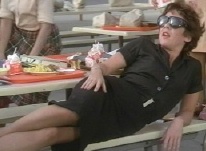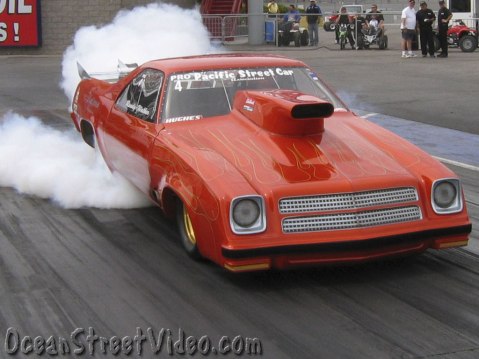30-Second Word Whoop: “Drag”
“Drag” sounds like no fun, unless you happen to be a smoker or cross-dresser.
Crosswinds can cause drag while sailing or racing.
Sometimes we must drag ourselves out of bed while dragging our favorite blankie and it’s all we can muster to drag a comb through our hair.
It’s no surprise, if you are a smoker, or even a judgmental non-smoker, that the roots of “drag” sound like a fire-breathing dragon, as in “Puff the Magic …”
According to the Online Etymology Dictionary, the verb form comes from the mid-15th century:
… from Old Norse draga, or a dialectal variant of Old English dragan “to draw,” both ultimately from Proto-Germanic *dragan “to draw, pull,” from PIE root *dhragh- “to draw, drag on the ground” (cf. Sanskrit dhrajati “pulls, slides in,” Russian drogi “wagon;” but not considered to be directly the source of Latin trahere).
The smoking definition is more modern:
Meaning “to take a puff” (of a cigarette, etc.) is from 1914. Related: Dragged; dragging. Drag-out “violent fight” is from c.1859. To drag (one’s) feet (1946, in figurative sense) supposedly is from logging, from a lazy way to use a two-man saw.
The “can I get a light?” strumpet character Rizzo in “Grease” famously drags down the song “Summer Nights” with her line “… ’cause he sounds like a drag.”
 Later, she rallies during a stealthy drag-racing challenge. She also drags the innocent Sandy into dressing more like a sexpot — which, generally, is how drag queens try to dress. You rarely see anyone in drag wearing a Betty Crocker ensemble — except maybe in “Tootsie.” Or Great Britain.
Later, she rallies during a stealthy drag-racing challenge. She also drags the innocent Sandy into dressing more like a sexpot — which, generally, is how drag queens try to dress. You rarely see anyone in drag wearing a Betty Crocker ensemble — except maybe in “Tootsie.” Or Great Britain.
(By the way, there is such a term as “drag king” — applied typically to lesbians who wear ties and suits and such.)
Dredging up more derivatives:
c.1300, “dragnet,” perhaps from a Scandinavian source (cf. Swedish dragg “grapnel”) or from Old English dræge “dragnet,” related to dragan “to draw” (see drag (v.)).
Sense of “annoying, boring person or thing” is 1813, perhaps from the notion of something that must be dragged as an impediment. Sense of “women’s clothing worn by a man” is said to be 1870 theater slang, from the sensation of long skirts trailing on the floor (another guess is Yiddish trogn “to wear,” from German tragen); drag queen is from 1941.
Drag racing (1947), is said to be from thieves’ slang drag “automobile” (1935), perhaps ultimately from slang sense of “wagon, buggy” (1755), because a horse would drag it. By 1851 this was transferred to “street,” as in the phrase main drag (which some propose as the source of the racing sense).
In addition to the time trials there are a number of “drag races” between two or more cars. They are run, not for record, but to satisfy the desire of most Americans to see who can get from here to there in the fastest time. [“Popular Mechanics,” January 1947]
Another slang definition for drag is “a person’s story: what they would have you believe.” Usually a lie or fabrication, but not always. As in: Don’t believe her drag, Toots.
Trust me.
- This drag-racing Chevy El Camino is also blowing smoke.


